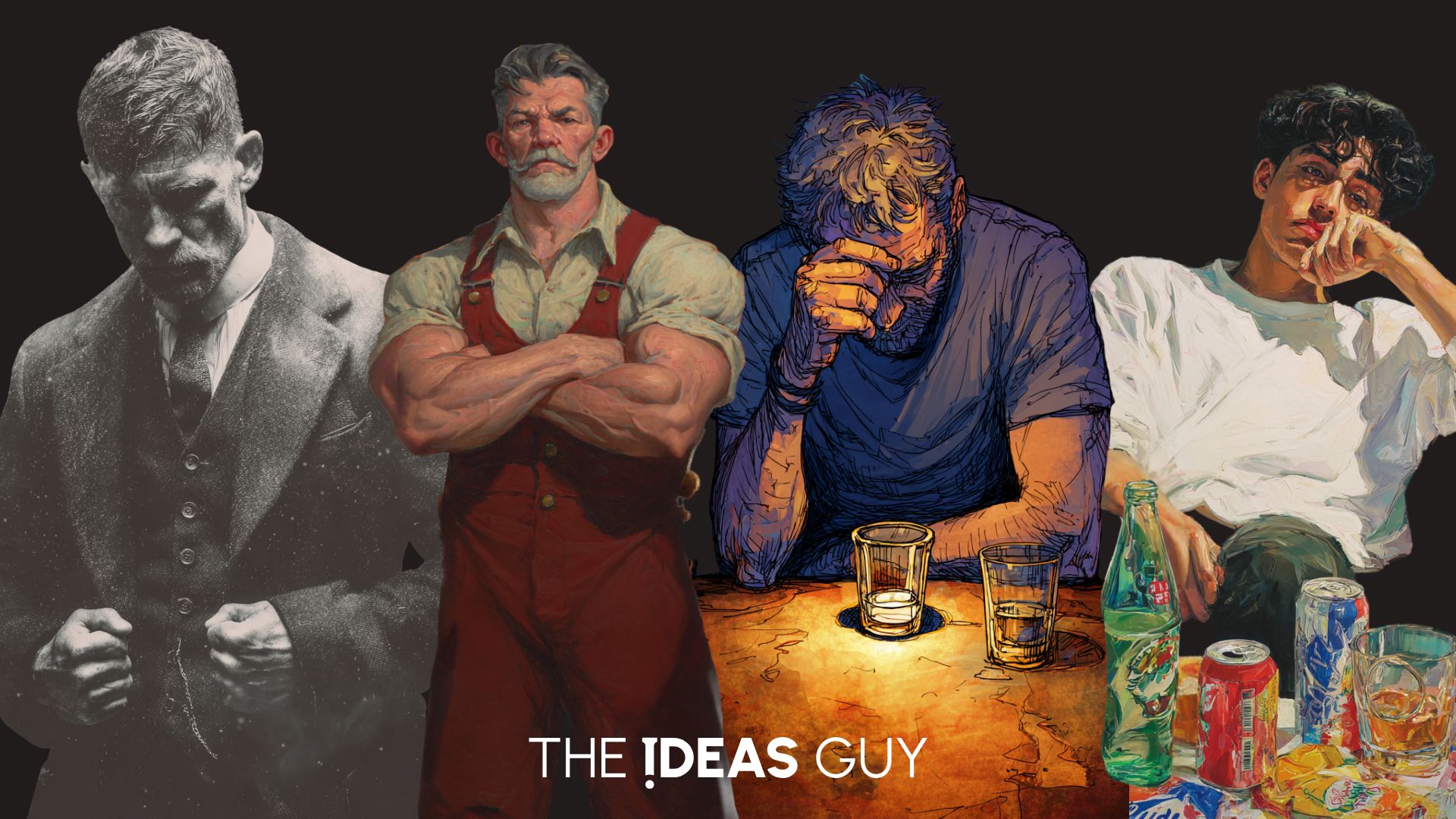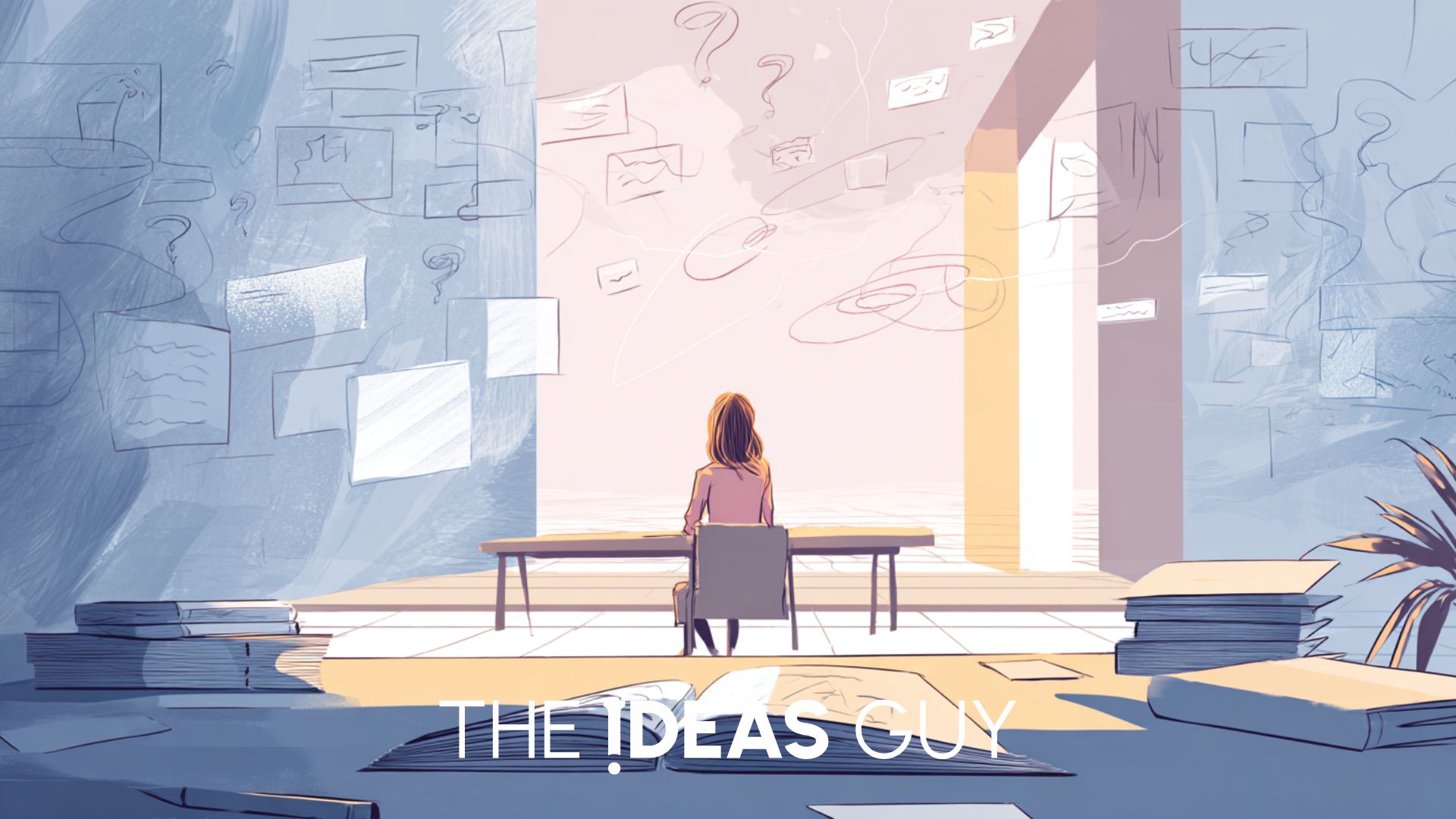"Hard times create strong men. Strong men create good times. Good times create weak men. And weak men create hard times." G.Michael Hopf
You've seen it plastered across social media, heard it quoted in podcasts, watched it shared by that mate who thinks he's discovered profound wisdom. It sounds ancient, doesn't it? Like something Marcus Aurelius might have scratched into his journal or Confucius might have offered to a troubled emperor.
But there's an awkward truth: this supposedly timeless wisdom comes from G. Michael Hopf's 2016 post-apocalyptic novel "Those Who Remain". That's right – the "ancient proverb" is younger than Brexit, newer than the Nintendo Switch, and about as historically grounded as a Marvel film.
Yet within just a few years, this fictional soundbite has been weaponised by political commentators, adopted by business gurus, and treated as an established fact about human nature. How did a line from a dystopian novel become accepted truth? And what does its viral success tell us about our appetite for dangerously simple explanations?
The Fiction Behind the Philosophy
G. Michael Hopf is a USA Today bestselling author and former U.S. Marine who writes post-apocalyptic fiction. His "New World" series explores what happens when civilisation collapses – the sort of testosterone-fuelled survivalist fantasy that fills airport bookshops. In "Those Who Remain," the seventh book in the series, the quote appears as dialogue from a character named Gordon, reflecting on the patterns of history.

It's worth noting that Hopf didn't present this as universal truth. It was a character's observation in a fictional world where traditional society had indeed collapsed, where only the physically tough survived, and where democratic institutions had failed. In other words, it made sense within the specific context of a post-apocalyptic narrative.
But context, as we know, rarely survives the internet.
Within months, the quote had escaped its fictional origins and begun circulating as standalone wisdom. The earliest viral image macros containing the phrase spread online starting in August 2016. By 2017, it was everywhere – used to explain everything from the decline of Rome to modern political movements.
The appeal isn't mysterious. Humans are pattern-seeking creatures, desperate to impose order on chaos. Cyclical theories scratch a particular psychological itch - they suggest that the bewildering complexity of history follows a predictable rhythm.
This isn't entirely irrational. Real cyclical patterns do exist in nature and human affairs. Economic cycles, generational changes, and political pendulum swings are observable phenomena. The problem comes when we mistake correlation for causation and reduce multi-variable complexity to simple formulas.
The hard times-strong men cycle offers something psychologically irresistible: it makes current suffering meaningful. If you're struggling economically, socially, or personally, the quote whispers that you're not just unlucky - you're being forged in the crucible of history. Your hardship has cosmic purpose.
For men particularly, the quote provides both explanation and validation. Feeling displaced by social change? Worried about your relevance in a changing world? Don't worry - you're just waiting for your moment. When the hard times come (and they always do), society will need strong men like you.
It's philosophical comfort food: emotionally satisfying but nutritionally bankrupt.

The Long Shadow of Real Cyclical Theory
To be fair, cyclical thinking about history has genuine intellectual pedigree. Ibn Khaldun (1332-1406), the Arab Islamic scholar often called the father of social sciences, developed sophisticated cyclical theories about the rise and fall of civilisations.
Ibn Khaldun's cyclical theory assumes that sovereign powers are like living organisms; they are born, grow up, mature, and die. He used concepts of 'umran' (civilisation) and 'asabiyyah' (social cohesion) to explain this pattern. His analysis was nuanced, acknowledging multiple variables: geography, economics, religion, and social structure.
He who finds a new path is a pathfinder, even if the trail has to be found again by others; and he who walks far ahead of his contemporaries is a leader, even though centuries pass before he is recognised as such. Ibn Khaldun
Similarly, thinkers like Oswald Spengler argued that cultures undergo processes comparable to the natural world's lifespan, moving through stages of spring, summer, autumn, and winter. Arnold Toynbee developed his own theory of civilisational challenge and response. Even ancient Chinese historians like Sima Qian articulated dynastic cycles.
But there's a crucial difference: these scholars acknowledged complexity. Ibn Khaldun criticised historians who imposed simple metaphysical ideas upon historical events, arguing that history should be treated as a science, not as arts and literature.
Hopf's viral quote strips away all this sophistication. It reduces Ibn Khaldun's multi-factorial analysis to a four-step washing machine cycle. It transforms nuanced historical theory into Twitter-friendly determinism.
The Masculinity Industry
Perhaps the most troubling aspect of the quote's popularity is how it's been co-opted by what we might call the "masculinity industry" - the cottage industry of podcasters, authors, and influencers selling solutions to the supposed crisis of modern manhood.
"Strong men" who get their nails done, eyebrows trimmed, feet pampered, make-up done for photoshoots, and beards combed and sprayed for glamour use this quote to promote their ultra-masculine marketing ploy for men experiencing mid-life crises.
The gendered language isn't accidental. Why "strong men" rather than "strong people"? The framing suggests that societal health depends specifically on masculine toughness - a narrative that conveniently ignores the countless examples of societies that flourished through cooperation, education, and diplomacy.
The real estate investor (note: not a philosopher, academic, psychologist or military leader) Stefan Aarnio literally wrote a book titled "Hard Times Create Strong Men" that examines "what it means to be a man in the modern world relative to money, sex, religion, and politics" - precisely the sort of reductive approach that turns complex social phenomena into personal development mantras. This interpretation also feeds into a dangerous nostalgia for imagined past greatness, suggesting that modern comfort and social progress have somehow ‘weakened’ society. It's the same logic that suggests women entering the workforce or democracy expanding are signs of civilisational decay rather than progress.

The Evidence Vacuum
Setting aside the philosophical and political issues, the quote has a more fundamental problem: it doesn't match historical reality.
Take Rome, the go-to example for cyclical decline. The Roman Empire actually peaked during the relatively peaceful Pax Romana. Some of Rome's greatest achievements - in law, engineering, literature, and philosophy - occurred during periods of prosperity, not hardship. The empire's decline had more to do with overextension, economic pressures, and institutional failures than with men becoming weak.
Or we could even consider modern examples. Denmark consistently ranks among the world's happiest countries despite having what the quote's logic would suggest are dangerously comfortable conditions. Singapore transformed from colonial outpost to prosperous city-state through institutions and governance - precisely the sort of "soft" factors the quote dismisses.
Meanwhile, societies that have experienced genuine "hard times" often simply collapse rather than producing "strong men." Somalia, Syria, and Afghanistan have endured decades of hardship without emerging stronger. Venezuela's economic crisis hasn't forged a generation of nation-builders. (I am not naive enough to suggest that there wasn’t significant Western influence in all of these examples too…)
Research on post-traumatic growth shows that while some individuals develop resilience through adversity, others are simply broken by it. The relationship between hardship and strength is neither automatic nor predictable.
The Passivity Problem
Perhaps the most insidious aspect of the quote is how it encourages passivity masquerading as wisdom. If history follows inevitable cycles, then there's little point in trying to prevent problems or improve institutions. Just wait for the cycle to turn.
This fatalistic thinking is particularly dangerous when facing genuine challenges. Climate change won't be solved by waiting for "hard times" to create "strong men" who magically fix everything. It requires sustained effort, international cooperation, and precisely the sort of long-term thinking that the quote's framework dismisses as "weak."
The quote encourages a peculiar form of procrastination: endure until things get bad enough to create heroes. But most human progress comes from people working to prevent crises before they become catastrophic, building institutions that can weather storms, and creating conditions where flourishing doesn't require extraordinary hardship.
Viktor Frankl, who survived Nazi concentration camps, understood something the quote's advocates miss as far as I can see. Meaning doesn't come from hardship itself but from how we choose to respond to it. We can't control what happens to us, but we can control our response – a far more empowering message than waiting for cycles to turn.

So how do we resist the seductive pull of simple explanations? How do we develop immunity to viral wisdom that feels true but isn't?
First, we need better historical literacy. Real history is messier, more contingent, and more interesting than any cycle can capture. Understanding how societies actually change; through technological innovation, institutional development, cultural exchange, and random events - inoculates us against overly simple narratives. And that means not having victors’ histories only.
Second, we should be suspicious of any theory that makes current hardship seem cosmically meaningful. While challenge can build character, suffering more often just causes suffering. The goal of good governance and human cooperation is to minimise unnecessary hardship, not create "strengthening" adversity.
Third, we need comfort with complexity and uncertainty. The world resists simple explanations not because we're not clever enough to find them, but because reality itself is irreducibly complex. That's frustrating but also liberating - it means we're not trapped in predetermined cycles. Occam’s Razor has stood the test of time for a reason!
Finally, judge ideas by their evidence, not their emotional appeal. The hard times-strong men cycle feels true because it appeals to our psychological biases, not because it accurately describes reality.
A Different Kind of Strength
Real strength often looks nothing like the quote's masculine fantasy. It's the strength to admit mistakes, seek help, change course when evidence demands it. The strength to choose cooperation over competition, prevention over heroic intervention, boring competence over dramatic gestures.

The societies that have achieved the highest standards of living and human development didn't get there through cycles of hardship. They got there through institutions, education, cooperation, and the patient accumulation of knowledge across generations.
True resilience isn't about enduring suffering until it magically transforms you. It's about building systems that prevent unnecessary suffering while maintaining the capacity to adapt when genuine challenges arise.
Instead of waiting for cycles to turn or strong men to emerge, we can work to build more resilient, more humane societies. We can develop institutions that prevent crises, support systems that help people through difficulties, and cultural values that prioritise human flourishing over dramatic narratives.
That's a far more empowering vision than waiting for history to repeat itself. It's also, thankfully, more likely to work.
Key Takeaways
- Interrogate viral wisdom. The most shared quotes are often the least reliable. This "ancient proverb" is from a 2016 post-apocalyptic novel but how wise and accurate is what we read or listen to?
- Value complexity over simple cycles. Real societies change through multiple interacting factors - technology, institutions, culture, random events - not predetermined patterns. It doesn’t have to be oversimplified to fit a narrative.
- Question gendered narratives. Be suspicious of theories suggesting societal health depends on masculine toughness or that frame social progress as weakness, as well as one version of manliness too.
- Acknowledge that evidence beats appeal. Judge ideas by how well they match reality, not how satisfying they feel psychologically or how beautifully they can be painted on a gym wall!
- Accept prevention over heroism. Strong societies prevent crises rather than waiting for heroes to emerge from disasters. If we wait for the Avengers to arrive, we will likely be disappointed.
- Embrace uncertainty. I have said this a lot but the world's complexity isn't a bug to be fixed with simple formulae - it's a feature that allows for genuine choice and change.
- Build, don't wait. The future is shaped by human decisions and institutions, not by cycles or the emergence of strong men from hard times.
The world is complicated enough without adding fictional frameworks that make it seem simpler than it is. Our energy is better spent understanding reality as it actually works rather than waiting for cycles to save us. Although I do think we need strong men (and women) for the times we find ourselves in. Heroes aren’t born; they grow.
Further Reading
Discover more interesting articles here.
.png)


